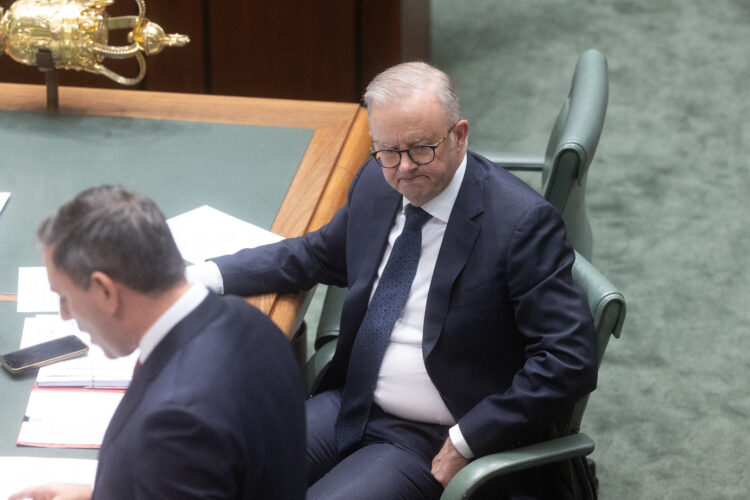We also in the weeks following October 7 terrorist attack, we committed $25 million for improved safety and security at Jewish sites across the country including schools. We added to that within 24 hours of being requested, $32.5 million for security measures for schools and synagogues. We passed legislation to criminalise hate speech.
We provided $250,000 towards the replacement and restoration of torah scrolls in the synagogue. $1.2 million for security upgrades to current buildings and $30 million to restore the synagogue and community centre.
And I was the first Prime Minister to visit the school there at Adass. We provided $8.5 million to the Sydney Jewish Museum and I went for the member for Wentworth and the centre of Jewish life and tolerance.
We announced $100 million for countering violent extremism and provided additional $4 million to expand the social cohesion work of Together for Humanity in Schools and provided $4.4 million to establish the national Holocaust education centre here in Canberra.
Now this will be accessible to the more than 160,000 school students who visit Canberra each year. I myself was able to welcome Enfield Public School about an hour or so ago.
They may be in the gallery. It is important that when people visit the centre just like they visit the National Gallery or the National Museum, the Australian War Memorial, part of that itinerary for young Australians is a part of raising the issue of anti-Semitism, of education, we will do. We committed $18 million to the Jewish Arts Quarter in Melbourne.
I’m asked also in the original question as well about the response of the Jewish community. The Jewish community, the government’s actions send a powerful message that terrorism, foreign interference and hate have no place in Australia.
“The government has acted promptly and appropriately in response to ASIO’s confirmation of this Iranian aggression against Australia.” The New South Wales and Jewish Board of Deputies,
“The Government has taken the right and appropriate steps in prescribing the IRGC and expelling Iranian diplomats based in Australia.”
The Iranian community, as well, “We welcome the Australian Government’s decision to expel the ambassador, the Islamic Republic of Iran following ASIO’s information.” The Australian Iranian community organisation – “We commend Prime Minister Anthony Albanese and his government for their clear and resolute actions. By taking this courageous stand, Australia is not only safeguarding its own national security, but also upholding justice, diversity and the protection of all its citizens regardless of faith or heritage.”
Mr Speaker, we on this side of the House, and I would hope across the parliament, understand that there are times when the nation should just come together.
I would have thought that yesterday was one of those times and it was.
It’s a pity it hasn’t lasted till today.
